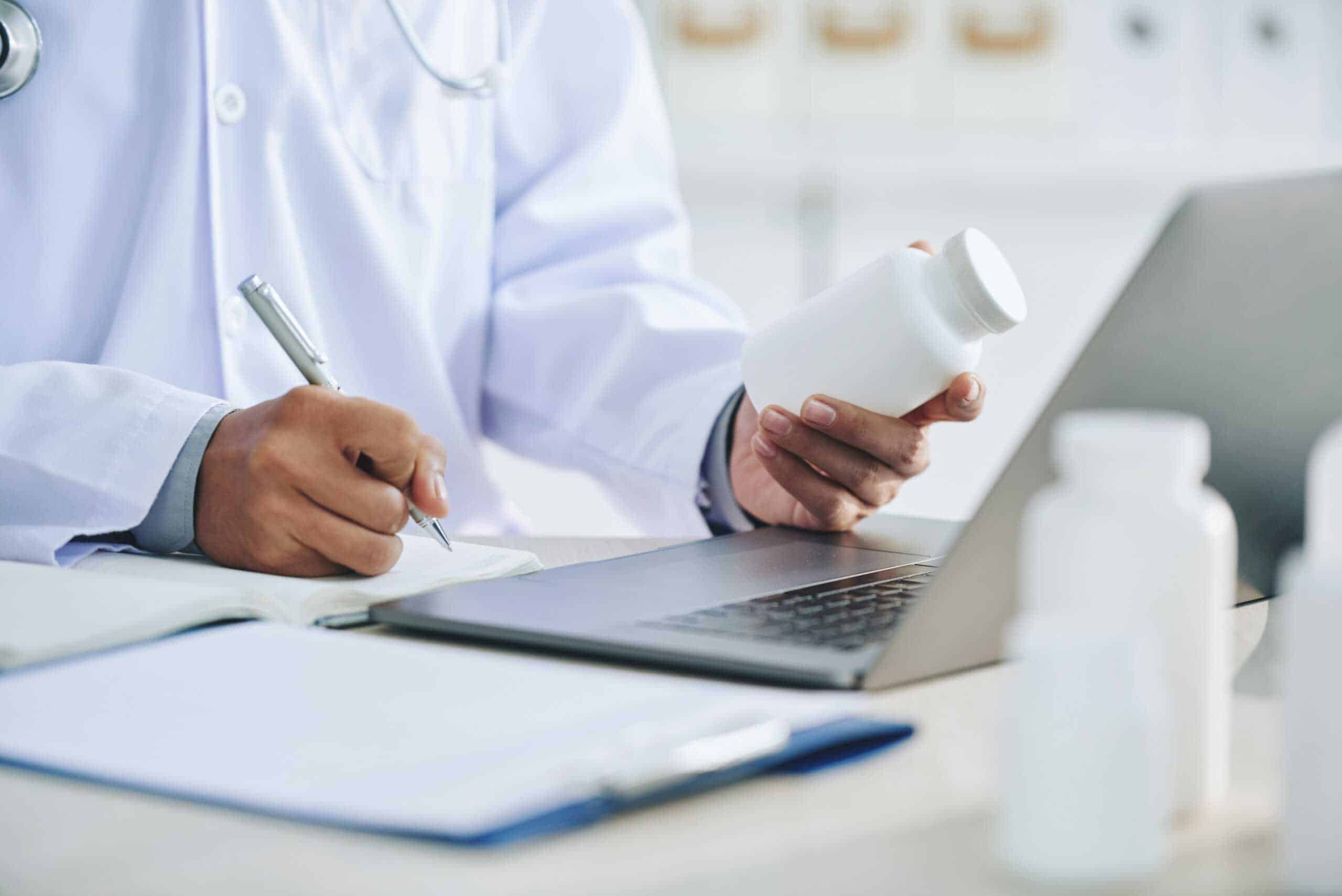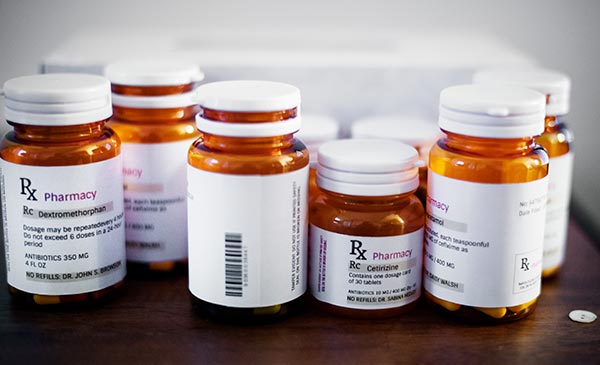Individualized Detox Options
Medically Assisted Detoxification
Medically Assisted Detoxification
The initial step on every journey of addiction recovery is admission to a medically assisted detoxification center. Those who have been abusing drugs or alcohol for any period of time almost always undergo some degree of withdrawal upon abrupt cessation of use. More often than not, the symptoms of withdrawal will lead a person back to substance use before the detoxification process is over. This is part of the reason why entering into an inpatient detox program is so important. At Immersion Recovery Center we provide a comprehensive detox program; one that focuses on more than a safe, pain-free drug and alcohol withdrawal. In addition to providing around the clock medical care, we actively prepare our clients for the next appropriate stage of their personal recovery journeys. During medicated detox, we conduct an individualized, in-depth evaluation, which helps us determine the length of our clients stay, what kind of medical intervention is necessary, which medications will be used to facilitate physical stabilization, and the next step for each client once they become stabilized.
If you or someone you love has been suffering from drug or alcohol dependence, detox is an important initial step, and we are available to help. At Immersion Recovery Center we effectively treat the physical and psychological symptoms associated with drug or alcohol withdrawal, making the entire detox process as comfortable as possible from start to finish. We utilize a combination of evidence-based medications, therapeutic practices and holistic treatment methods to provide the most integrated and effective care available. To learn more about our program of medicated detox or to learn more about our multi-staged addiction treatment program as a whole, contact us today.
What is Medicated Detox
Addiction is a chronic health condition, one that is characterized by repetitive substance use despite significant consequences. Addiction is also a progressive health condition, meaning related symptoms will continue to get worse the longer they are left untreated. In the majority of cases, addiction can be effectively treated with a multi-staged treatment program and a personalized program of aftercare. While the most effective treatment options look different for everyone, medicated detox serves as an important part of the treatment process. During medicated detox a person undergoes a safe, pain-free drug or alcohol withdrawal under the close care of a team of licensed medical professionals. Regardless of what type of substance was being abused and the severity of the substance use disorder, some symptoms of withdrawal are bound to develop once substance use is abruptly stopped. In many cases these symptoms can be adequately treated with a combination of medication, bed rest and therapy. However, in cases of long-term and severe substance use, more intensive measures might become necessary.
At Immersion Recovery Center we have developed an individualized and effective detox program, one that consistently takes the unique needs of each client into account. We believe that medical detox should focus on more than physical stabilization; we believe detox should set a solid foundation for continued success in sobriety. Contact us today to learn more.
We Are Here For You
Let Us Help You Heal
Our detoxification experience is second to none.
Learn how we can help by speaking with one of our Treatment Advisors today.
Signs & Symptoms of Addiction
If you believe you or someone you love has been suffering from a diagnosable substance use disorder, there are several signs and symptoms to keep an eye out for. The Diagnostic and Statistical Manual of Mental Disorders, Fifth Edition (DSM-V) outlines a list of diagnostic criteria used to identify the presence of a substance use disorder. If you answer “yes” to two or more of the following questions, seeking professional help from a medical detox center is likely a good idea.
- Do you sometimes end up using more drugs or alcohol than you originally intended, or do you use substances more frequently than you intend to?
- Have you wanted to cut back on the amount you take or quit entirely, only to find you were unable to do so for any significant period of time?
- Do you spend a significant amount of time obtaining your substance of choice, using the substance and recovering from its effects?
- Do you often think of using your substance of choice/do you ever experience intense cravings?
- Has your substance use interfered with your ability to fulfill personal obligations or negatively impacted your performance at work or at school?
- Have you experienced interpersonal problems as a direct result of your drug or alcohol use?
- Have you given up activities which were once interesting or important to you in order to engage in drug or alcohol use?
- Have you been engaging in risk-taking activities more often than normal, like driving while under the influence of drugs or alcohol, engaging in promiscuous sex or combining your substance of choice with other substances?
- Do you continue to use drugs or alcohol despite physical or psychological health concerns directly related to your substance use?
- Have you developed a physical tolerance, meaning a higher dose is required in order for the desired effects to be achieved?
- Do you experience withdrawal symptoms when substance use is stopped abruptly?
Our Treatment Services Include
Withdrawal Signs & Symptoms
The symptoms associated with drug and alcohol withdrawal vary significantly depending on the specific substance. Withdrawal symptoms can be broken down into two distinct categories — physical symptoms and psychological symptoms. Although the specific set of symptoms will vary on a case-by-case basis, the following symptoms can be expected.

Common Physical Withdrawal Symptoms
The most common physical symptoms associated with drug and alcohol withdrawal include nausea, vomiting, diarrhea, stomach cramping, tiredness and fatigue, insomnia, muscle aches, joint pain, headache, uncontrollable shaking, body tremors, increased sensitivity, profuse sweating, chills, low-grade fever, loss of appetite, restlessness and sleeplessness.
Common Psychological Withdrawal Symptoms
The most common psychological symptoms associated with drug and alcohol withdrawal include anxiety, panic attacks, depressed mood suicidal ideation, mood swings, agitation, irritability, paranoia, delusions, hallucinations, racing thoughts, disorientation and extreme confusion.
Ready To Begin Your Treatment?
Let Us Help Your Family Heal
Our family therapy program is second to none.
Learn how we can help your family by calling a Treatment Advisor now.
Is Medicated Detox Always Necessary?
Medicated detox is always a good option, no matter how severe a substance use disorder has become or what type of substance was being used. The symptoms associated with drug and alcohol withdrawal can be unpredictable, and often lead to serious complications when they are left untreated.

There are numerous benefits which go hand-in-hand with inpatient detox, including:
- Clients have access to professional, around the clock medical care.
- Clients are able to relax in comfortable, private bedrooms.
- In addition to medical care, clients can take advantage of professional therapeutic care by way of individual, group and family therapy sessions.
- Clients have 24/7 access to a fully stocked kitchen and daily, chef-prepared meals, including highly nutritious foods geared towards physical healing.
- Clients work directly with a case manager who helps them develop a personalized aftercare plan, including an immediate transition into the next appropriate level of care.
- If a potentially dangerous symptom develops, clients have access to medication assisted treatment options.
- Clients are able to find effective alternatives to any prescription medications they might have been misusing.
Treatment Options for Drug & Alcohol Withdrawal
The duration and severity of withdrawal symptoms can be significantly reduced with the use of certain medications. In order to be effective, these medications must be administered in a medical detox setting by a licensed professional. Attempting to detox at home is never a good idea. Not only can health-related complications occur, but most people who detox at home return to drug or alcohol use before the withdrawal process has come to an end. The right treatment options for you will depend heavily on several factors, including what type of substance you were using, how long you were using it and whether or not you have any pre-existing conditions. If you would like to learn more about the treatment options best suited for you and your unique case, contact Immersion Recovery Center today.
Medications Used for Drug Withdrawal
Medications commonly used for the treatment of drug withdrawal include:
- Opioid Withdrawal – Medications like buprenorphine or naltrexone might be used to alleviate physical symptoms of opioid withdrawal while reducing drug cravings. These medications are partial opioid agonists, meaning they mimic the effects of opioid narcotic drugs without producing a high. In some instances, alpha-2 adrenergic agonists such as clonidine and lofexidine might be utilized.
- Benzodiazepine Withdrawal – The symptoms associated with benzodiazepine withdrawal can be particularly dangerous when left untreated, and might include grand mal seizures in severe cases. If a client has a personal history of seizures or if they were using benzodiazepines for more than several months, they might be treated with an anticonvulsant medication. Clonidine and other blood pressure medications may prove beneficial, and if psychological symptoms are severe an SSRI or beta-blocker night be utilized.
- Stimulant Drug Withdrawal – In most cases the physical symptoms associated with stimulant drug withdrawal can be managed with over-the-counter pain relievers. However, if the psychological symptoms are particularly severe, an antidepressant or anti-anxiety medication might be utilized.
Medications Used for Alcohol Withdrawal
Medications commonly used for the treatment of alcohol withdrawal include:
- Benzodiazepines – Certain benzodiazepines can be used to prevent more severe symptoms associated with alcohol withdrawal. Diazepam (Valium), lorazepam (Ativan), or chlordiazepoxide (Librium) might be used.
- Gabapentin – This medication, predominantly used to treat seizures and nerve pain, has proven effective for the treatment of severe alcohol withdrawal symptoms.
- Non-Narcotic Sleep Aids – Because insomnia is a symptom commonly associated with alcohol withdrawal, non-narcotic sleep aids might be prescribed to help with sleeplessness.
Long-Term Addiction Recovery
At Immersion Recovery Center we break our medical detox program down into three distinct stages: evaluation, stabilization and preparation. Upon admission to our detox program each client undergoes a detailed and in-depth addiction assessment, or evaluation.

We ask a series of pertinent questions, including:
- What type of substance/substances were being used, and for how long?
- Have you ever been diagnosed or treated for an underlying mental or physical condition, such as a mental illness or chronic health concern?
- Have you undergone treatment for a substance use disorder in the past?
- How much of the substance were you using on a daily basis/what dosage were you taking?
The questions we ask during the initial assessment help our clinical and medical team determine which detox methods are the most appropriate for each unique case. Next, we focus our attention on physical stabilization. Clients are able to relax in their private or semi-private bedrooms, and they have the opportunity to participate in group workshops and behavioral therapy sessions if they are feeling up to doing so. The physical and psychological symptoms of withdrawal are treated as soon as they develop, seeing as our team of licensed medical professionals are available 24-hours a day. Our main priority is making the detox process as comfortable as possible. Once physical stabilization has been achieved, clients make a smooth transition into the next appropriate level of clinical care. In most cases, this means transitioning into a residential inpatient treatment center.
At Immersion Recovery Center we offer a multi-staged program of recovery, which includes:
- Medically Monitored Detox
- Residential Inpatient Treatment
- Partial Hospitalization (PHP)
- Intensive Outpatient Treatment (IOP)
- Aftercare
Long-term drug addiction recovery is always possible. With an individualized and effective treatment program in place, even the most severe cases of substance misuse and dependence can be overcome. Contact us today to learn more or to get started with our simple and straightforward admissions process.
Begin Healing Now!
Have A Call With One Of Our Treatment Advisors
Don’t Suffer Any Longer
Contact Us Today to Learn More
Immersion Recovery Center provides a licensed, individualized and integrated detox program to people of all ages who have been struggling with addictive disorders of all types and severities. We offer a step-down curriculum of clinical care, designed to help our clients make a smooth and seamless transition from medical detox into the next level of care and eventually back into independent living. We understand how difficult it might seem to choose the best drug and alcohol detox in Florida for your unique personal needs. Fortunately, we are available to help make the decision easier. The moment you contact us, either directly through our website or over the phone, you are put in touch with one of our experienced and compassionate Treatment Advisors. They ask a short series of questions, ultimately helping you determine which level of care is the most appropriate for your unique case. If we believe our program is a good fit we conduct a free, no obligation insurance benefit check and facilitate local travel to our Delray Beach, Florida treatment center. Contact us today to begin.
Get Started Now
Give us a call 24/7
(888) 693-1604

















